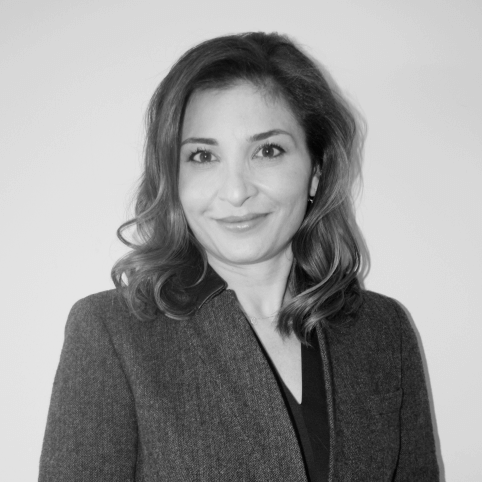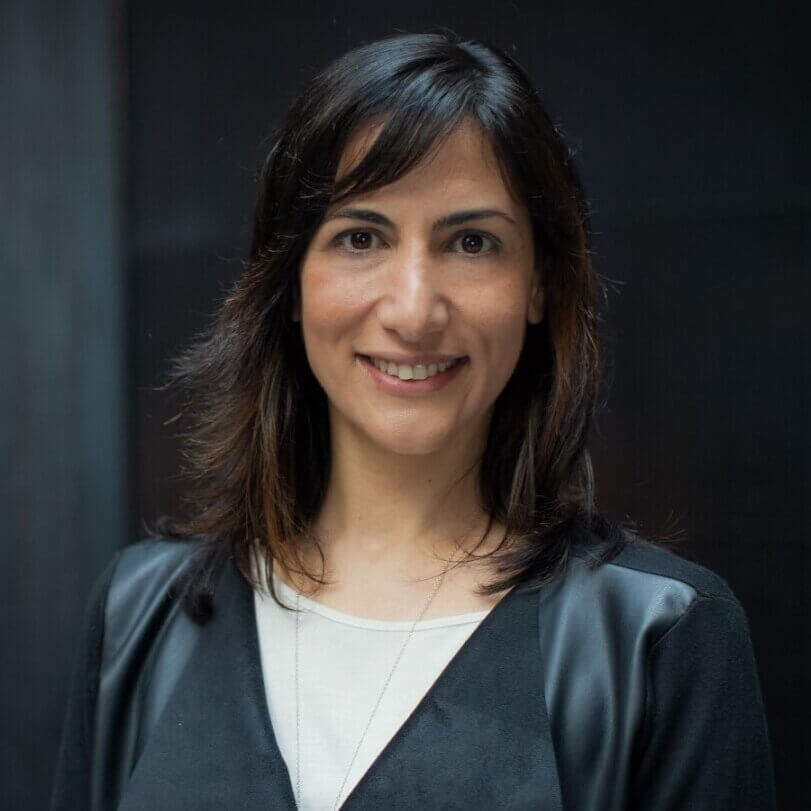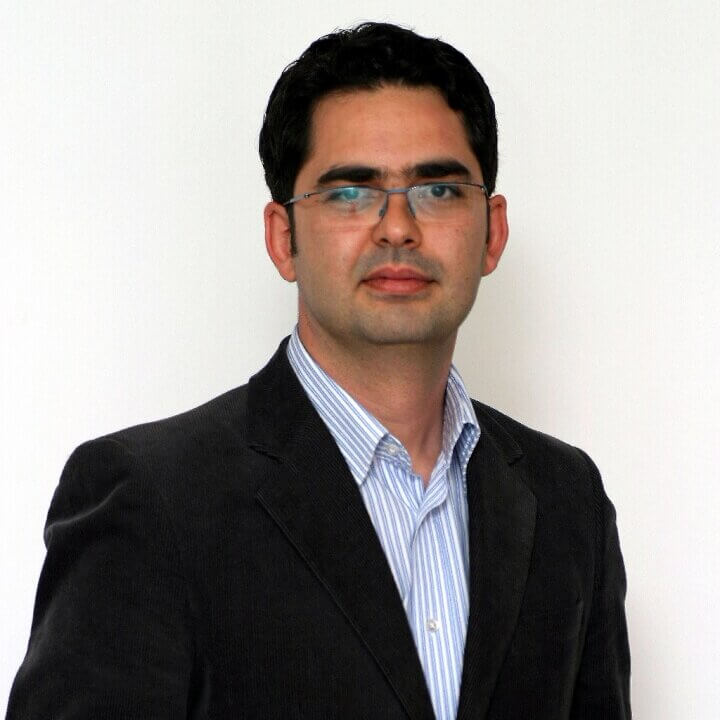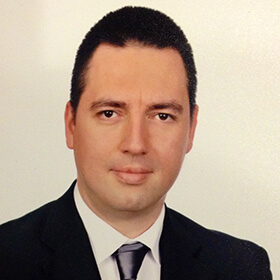Amid this shifting order, middle powers have begun to occupy a broader space in global affairs. These states, often positioned between global hegemons and smaller, less influential nations, act as stabilizers within the international system. Through mediation efforts, regional diplomacy, and strategic initiatives—sometimes beyond their material capabilities—they contribute meaningfully to international stability and governance. In times of heightened uncertainty, such states often distinguish themselves through their multifaceted diplomacy, proactive foreign policy choices, and flexible approaches to alliance-building.
In this context, Türkiye emerges as a noteworthy example of a middle power. With its unique geostrategic location, diverse resources, and foreign policy, Türkiye has gained increasing influence in its region and on a global scale. Moreover, it has become not only a significant actor in an international order undergoing radical transformation, but also, at times, a disruptive force challenging the status quo.
This edition of Panorama Asks explores Türkiye’s foreign policy through the lens of its evolving identity as a medium-sized power. To this end, we posed three key questions to distinguished scholars—Zeynep Arkan, Pınar Dost, Özgür Özdamar, Özlem Kayhan Pusane, and Mehmet Ali Tuğtan—whose insights provide valuable perspectives on Türkiye’s strategic positioning in a rapidly changing world. We thank them for their valuable contributions to Global Panorama and invite you to reflect on their views in the pages that follow.
Q1: International relations literature suggests that middle powers often expand their influence in times of global uncertainty. Can we assert that Türkiye, as a medium-sized power, has adopted a foreign policy in line with this trend in recent years? If so, what are the defining parameters of this orientation?
Q2: Beyond its geopolitical significance—amplified by its proximity to key conflict zones—Türkiye’s efforts to act as a mediator in various disputes are particularly noteworthy. In light of current regional developments, how would you evaluate Türkiye’s pursuit of a proactive foreign policy and the role it envisions for itself within the international system? Is the country’s capacity sufficient for such a role, and are there any potential pitfalls?
Q3: As a medium-sized power, how should Türkiye ideally shape its foreign policy and international partnerships at the regional and global levels?
Zeynep Arkan, Hacettepe University

In recent years, Türkiye’s heightened visibility in international affairs has led many observers to label it a ‘middle power’. While this designation may seem appealing on the surface, it often rests on hollow rhetorical foundations. Ankara’s foreign policy moves reveal a pattern less of long-term strategy than of reactive maneuvering, primarily shaped by domestic political calculations and short-term opportunities. Undeniably, there are moments of effective action and decisive roles in regional crises. Much of this perceived success, however, stems from shifts in the international system itself: the weakening of the West, the European Union’s internal fractures, and the rise of alternative actors such as Russia and China. It is difficult to argue today that Türkiye possesses a comprehensive and sustainable foreign policy vision.
Türkiye’s influence remains palpable in regions such as the Balkans and the Middle East. Yet, this influence often draws less on strategic foresight than on structural advantages, such as historical ties and geographic proximity. Although Türkiye is frequently presented as a ‘game-maker,’ the long-term legitimacy and substance of this role are debatable. Actual lasting influence requires predictability, diplomatic consistency, and the building of mutual trust in relationships – conditions that are far from satisfied by current foreign policy practices.
Recently, Türkiye has sought to increase its visibility through mediator or facilitator roles in various conflicts. Examples include the grain corridor established during the war in Ukraine, mediation efforts in prisoner exchange processes, multidimensional diplomatic bargaining in Sweden’s NATO accession, and facilitation in the rapprochement between Saudi Arabia and Iran. However, visibility does not necessarily imply influence. Mediation requires more than spatial or historical advantage; it demands balanced, principled, and consistent diplomacy recognized by all sides. Thus far, the rhetorical profile of Türkiye as an impartial facilitator has yet to translate into concrete and lasting credibility. As long as foreign policy continues to be shaped by domestic political imperatives, it will become increasingly difficult to establish international legitimacy as a stable and trustworthy actor.
For Türkiye to achieve genuine influence in foreign policy, it must evolve from a reactive crisis manager to a predictable, responsible actor that understands its position in a transforming international system. In this context, relations with Europe are particularly strategic. Türkiye’s transactional and opportunistic approach toward the West is unsustainable in the long term. Indeed, the EU’s normative power has weakened, and it is facing internal crises. Yet this also creates potential ground for a new strategic dialogue. Gradual, trust-based rapprochement is possible in areas such as energy security, migration management, the defense industry, digital transition, and infrastructure protection.
Türkiye’s recent maneuvering space in the international system stems not only from structural opportunities but also from its structural advantages: its large population, strategic geography, military capacity, and economic power have cemented it as a significant actor. However, turning this potential into an effective and sustainable foreign policy depends not only on possessing such advantages but also on how they are utilized. A lack of strategic vision, the absence of clear long-term goals, and weak institutional capacity continue to hinder the translation of structural advantages into real impact.
Another aspect worth emphasizing is the transformation of the international system itself. Especially under the Trump administration, the United States’ retreat from global leadership and multilateral institutions opened new maneuvering space for countries like Türkiye. However, accessing these spaces requires more than just reactive responses; it demands a clear strategic vision. Türkiye has entered these newly available arenas, but often in ways driven by immediate circumstances rather than a coherent long-term plan. Without established goals and institutionalized diplomatic frameworks, it is unlikely that these opportunities will be translated into lasting and transformative influence.
In summary, Türkiye is a prominent actor on the global stage today. Yet visibility does not always translate into real influence. Influence is consolidated not merely through reactive adaptation, but also through predictability, sustainability, and consistency. Reconsidering ties with Europe while capitalizing on regional opportunities is essential not only for foreign policy success but also for strengthening democratic institutions domestically. Ultimately, leaving a mark on foreign policy requires more than selecting a direction – it demands mapping out a coherent and strategically informed course.
Pınar Dost, Atlantic Council

During the transition from a unipolar to a multipolar global order—marked by the erosion of institutions tasked with maintaining the rule-based system and international peace—rising middle powers have capitalized on the opportunity to expand their influence in both regional and global affairs. While the concept of middle power is not new, its roles within the international system have undergone a significant transformation. This shift has been largely driven by the United States’ gradual retreat from its hegemonic responsibilities and its growing reluctance to act as the guarantor of global order.
Increasingly, we observe the emergence of assertive middle powers like Türkiye, which refrain from aligning themselves with any party. Instead, they pursue autonomous foreign policies based on national interests, challenging the notion that global power dynamics are solely defined by great power competition.
Türkiye is usually grouped with other influential middle powers such as Brazil, India, Indonesia, South Africa, and Vietnam. The Russia-Ukraine war has illustrated how middle powers assert their strategic autonomy. India declined to condemn Russia, while Israel maintained cordial relations with Moscow and withheld arms from Ukraine for an extended period. Simultaneously, the United States struggled to prevent Chinese-brokered rapprochement between Iran and Saudi Arabia, the Gulf states’ normalization efforts with Syria during Assad regime, and could not convince Israel to ceasefire with Hamas in Gaza.
Türkiye, for its part, pursued a balancing strategy between Russia and Ukraine, adopted an independent stance on Sweden and Finland’s NATO accession, reinforcing its national interests, and followed its own agenda in Syria—supporting opposition forces and positioning itself apart from both Western and Russian policies. As a middle power, its broader foreign policy reflects strategic autonomy, evident in its balancing efforts between China and the United States. The “Asia Anew Initiative,” launched in 2019, further underscores Türkiye’s pivot towards South and Southeast Asia and its adoption of a multilateral, multi-layered approach to foreign engagement.
Middle powers like Türkiye have the capacity to act independently of great powers, guided primarily by national interests. Türkiye’s foreign policy orientation stems from a perception by the government that the EU and the Western alliance are insufficient to protect its strategic interests. This has led to two approaches: a policy of balance and a policy of expanding its sphere of influence.
Since the AKP’s rise to power in 2002, Türkiye has deepened its engagement with the Middle East, Balkans, Central Asia, and Africa—initially through trade and cultural diplomacy, and post-2015, through military interventions and cross-border deployments. Its foreign policy ambitions extend beyond its immediate region, projecting both hard and soft power. Western observers have often labeled this expansive role—particularly in former Ottoman territories—as “neo-Ottomanism” or interpreted it as reflecting its hegemonic aspirations.
Historically, Türkiye’s strategic position as a bridge between the West and the Islamic world, as well as the rationale for a proactive regional policy, have been espoused before—by leaders such as Turgut Özal (1983-1989) and Ismail Cem (1997-2002).
However, the AKP government has expanded this vision, most recently under the banner of the “Türkiye Century,” which envisions a “Türkiye Axis” centered on cooperation with Turkish and Muslim-majority countries.
This strategy incorporates both soft power instruments—economic partnerships, cultural diplomacy, humanitarian efforts, and regional mediation—and hard power tools such as military interventions, arms exports, overseas military bases, defense capacity-building, and participation in peacekeeping operations. As a result, Türkiye has become a key actor in regional issues and global diplomacy.
However, Türkiye’s independent posture has its limits. The most significant constraints are its existing international commitments and alliances. Türkiye is uniquely positioned as the only middle power that is both a NATO member and an EU candidate, and its geographic location places it at the intersection of several critical global fault lines essential for Euro-Atlantic security.
Consequently, Türkiye’s balancing act between East and West—especially its perceived pivot away from the West—has drawn considerable scrutiny. Actions by other middle powers, such as India’s S-400 purchase from Russia or Saudi Arabia’s deepening ties with China, often attract less criticism than Türkiye’s similar moves. Furthermore, despite efforts to diversify its trade, Türkiye’s economic vulnerabilities and growing dependence on China and Russia—whose exports to Türkiye have surged by approximately 80% and 150%, respectively, over the past decade—limit its strategic flexibility. This dependency persists even as over 40% of Türkiye’s trade remains tied to the EU and the United States.
Özgür Özdamar, Bilkent University

Some observers argue that the international system directly influences each state’s foreign policy behavior, while others conclude that the system indirectly affects actors. According to the first view, all states, irrespective of their power, operate within the constraints permitted by the system. The world is currently experiencing a period of upheaval within the international system. The illegal annexation of Crimea by Russia in 2014 and its subsequent full invasion of Ukraine in 2022 are challenging the core principles of the international order established by the United States after World War II.
The end of the Cold War also created a severe system rupture. Scholars nostalgically recall the stability of the Cold War, a time characterized by two opposing poles, where alliances, rivalries, and foreign policy objectives were clearly defined. Conversely, the “New World Order” was declared at the end of the Cold War, and the balance of power within this order has yet to be established, despite the passage of more than a quarter of a century. The United States remains ahead of all its rivals, including China, in most parameters constituting the dimensions of the phenomenon we call power. However, it is also clear that we are not in the 1990s, when the world experienced the peak of unipolarity and American power.
This uncertainty in the system presents both opportunities and challenges for all stakeholders. Turkey is one of the countries trying to develop its regional and global influence by taking advantage of this environment. In this context, Turkey distinguishes itself as a nation seeking an enhanced role in global governance. It aspires to address issues in its vicinity and beyond, spanning Africa, Latin America, the Middle East, and Central Asia. It demonstrates an increased military presence beyond its borders and articulates its ambition for regional leadership at the highest level.
Efforts to pursue a proactive foreign policy are not new to us. Before World War II, Turkey, under Mustafa Kemal Atatürk’s leadership, adopted a foreign policy that was notably more independent, non-aligned, proactive, and influential. However, the rigid, bipolar structure of the Cold War that emerged after the Great War imposed a specific foreign policy on all countries. Turkey, as a country neighboring the Soviet Union and living under direct threat from it, decided to participate in the security cooperation mechanisms of the West. Turkey’s foreign policy predominantly aligned with the Western alliance throughout this period, except for the Cyprus crisis. The fall of the Soviet Union afforded Turkey, as it did for all entities, the opportunity to adopt a more flexible foreign strategy. Official openings to Central Asia, Latin America, and Africa commenced as early as the 1990s.
Turkey possesses a larger population, more prosperity, and superior military strength than its neighboring countries. Numerous domestic and international experts have underscored this following the end of the Cold War, accentuating Turkey’s potential. Turkey’s national defense sector, which has evolved in recent years, has exerted a multiplier effect on its capabilities, enhancing its endeavors to adopt a more autonomous foreign policy and assume a more proactive role.
At this point, it is necessary to emphasize the role of foreign policy decision-makers and their responsibilities to the nation. During the Arab Spring, Turkish policymakers emphasized Turkey’s regional leadership, its capacity to influence the regional order, its pursuit of a more proactive and autonomous policy, and its position as the advocate for the oppressed. This circumstance has significantly altered the pursuit of foreign policy. These roles have also compromised Turkey’s relations with its traditional ally, the United States.
Turkey distinguishes itself as keen to assume a mediatory role in numerous crises within its region and abroad. Despite the significance of its primary foreign policy objectives, it accommodates mediation endeavors and seeks to convene the conflicting parties for discussions. This condition correlates with Turkey’s aspiration to assume a greater role in the international scene and the decision-makers’ view of Turkey. I think mediation is in line with our capacity. However, whether other actors recognize and accept this active role that Turkey aspires to play is debatable.
Turkey has been a part of the European community of states since the Treaty of Paris was signed in 1856. Since its early days, the Republic has prioritized its membership in Western institutions and organizations as a fundamental goal, due to Westernization’s historical legacy from the late Empire and other factors, such as security and identity. Indeed, with NATO membership in 1952, this entire process spanning decades became concrete, and Turkey became a part of perhaps the highest-level cooperation club in the Western world.
Today, the world is fast approaching a new turning point. A new Cold War, encompassing all areas of life and ideology, is not expected. However, we are entering a rapid polarization period. It is uncertain whether the Trump administration will fulfill the requirements of the traditional leadership role that the United States has assumed since 1945. The trade wars between the two largest economies are testing the limits of the global economy that is now completely integrated. Although Russia has failed to achieve its goal in Ukraine through its illegal invasion, which is entirely against the established international norms, it continues to be one of the most significant nuclear powers and one of the most critical risks to European security. While China is increasing its military capacity, it is expanding its network of economic partners in distant geographies, especially in Africa. The European Union’s capacity to execute an autonomous foreign policy as a geopolitical entity is disputable, especially after Brexit and the rise of skeptical factions on European integration in several countries.
With a population of 85 million, an economy exceeding 3.5 trillion dollars (PPP), and powerful armed forces, Turkey can exert influence across a vast geography, particularly in the Middle East, the Mediterranean, and the Balkans. Turkey’s NATO membership and aspiration to join the European Union remain significant factors in its foreign policy. Alongside Turkey’s nearly two-century-long relations with the West, its ability to cultivate balanced relations with other actors, including Russia, China, the Gulf countries, and the Organization of Turkic States, is significant. Turkey’s status as a NATO ally and its capacity to engage in dialogue with other actors enhance its value. Turkey’s existing balancing approach should be sustained and further improved while staying committed to its formal alliances.
Özlem Kayhan Pusane, Işık University

Periods of global uncertainty or settings where different centers of power emerge in the international system, with the future order remaining ambiguous, present opportunities for medium-sized powers to expand their maneuvering capabilities. The current era coincides with such a phase of uncertainty and transition within the international system. This framework allows for the assessment of Türkiye’s ambitious foreign policy initiatives in recent years, including those in the Middle East, Africa, the Balkans, and the Caucasus. Examples such as Türkiye’s military support to Azerbaijan against Armenia in the conflicts in Nagorno-Karabakh, military bases established in Qatar and Somalia, Türkiye’s increasing defense industry exports ranging from unmanned aerial vehicles to naval ships in different parts of the world, and hosting Russian and Ukrainian delegations in Istanbul many times for negotiations following Russia’s invasion of Ukraine in 2022 are just a few indicators of Türkiye’s active and ambitious foreign policy.
To assess Türkiye’s foreign policy as a medium-sized power, it is necessary to concentrate on two primary factors: The first consideration is Türkiye’s ability to engage in a proactive foreign policy across economic, political, and military dimensions, while the next one refers to the willingness of Turkish officials to assume such a role. Türkiye possesses significant potential in its fundamental characteristics, functioning as a secular and democratic country despite its Muslim majority, and as a participant in key Western institutions such as NATO, the Council of Europe, and the OSCE after World War II, while also attaining candidate status for the European Union in 1999.
Türkiye has markedly enhanced this potential, particularly due to its growing economy in the early 2000s and its economic relations with numerous countries. During this period, Türkiye also undertook significant diplomatic initiatives and efforts in the negotiations between Syria and Israel, as well as in issues regarding Iran’s nuclear program. The assertive foreign policy initiatives of the Justice and Development Party governments, which reflected Türkiye’s aspiration to become a regional power, unequivocally demonstrated that Turkish policymakers were deeply invested in this goal.
However, in the context of the changing regional dynamics brought about by the Arab uprisings, as well as in the aftermath of the failed coup attempt on July 15, 2016, Turkish foreign policy has entered a period in which military initiatives have become more prominent, while Türkiye’s soft power has begun to recede into the background. The economic challenges and the decline in the country’s democratic standards have also negatively affected Türkiye’s soft power perception. Upon examining Türkiye’s past decade, it is evident that its foreign policy has continued to focus on becoming an ambitious regional power. However, we also observe that this vision has increasingly taken shape around hard power elements, such as cross-border counterterrorism operations in Iraq and Syria, military cooperation developed with various countries, and investments and exports in the defense industry..
While Türkiye has established itself as a credible actor in the international system with the initiatives mentioned above, it can further enhance its regional and global power projection capabilities by adopting a more balanced foreign policy that integrates both hard and soft power elements, as it has done in previous years. Within the framework of Joseph Nye’s conceptualization of “smart power,” such a foreign policy vision will allow for the effective combination of Türkiye’s various sources of power—including its valuable geostrategic position, cultural heritage, economic potential, military capabilities, and diplomatic skills—into a coherent strategy. In this way, Turkey’s aspiration to be a regional power could be placed on a more sustainable and lasting ground.
Mehmet Ali Tuğtan, Istanbul Bilgi University

The crisis of American hegemony began with the September 11 attacks and became more deeply rooted after the 2008 financial crisis, eventually taking on a structural character. In the era of loose multipolarity that followed—from 2008 to the present—Türkiye, as a middle power, initially stood out through its mediation and facilitation efforts aimed at fostering regional peace, particularly in the Middle East.
One of the earliest signals of Türkiye’s shift in foreign policy was the “One Minute!” incident at Davos, which sparked debates about an “axis shift” in the country’s orientation. Another early indicator was the joint initiative with Brazil in 2010 to mediate Iran’s nuclear program. In the decade that followed (2010s), Türkiye began to act in line with the behavioral patterns of middle powers described in international relations literature. Its foreign policy sometimes diverged from both the United States and Russia, especially during the Syrian civil war; it developed energy and trade ties with Iran, expanded its influence in Africa, built a strategic relationship with Russia, followed a balancing approach in the Ukraine war, and played an active role in the Karabakh conflict and later stages of the Syrian revolution. During this same period, Türkiye also sought to diversify its trade and capital sources, reduce external dependence in the defense sector, and adopt a more transactional relationship with the EU and the United States—its traditional transatlantic partners since the Cold War. All these developments reflect a pragmatic shift consistent with middle power behavior in times of global turbulence.
Historically, even during the 1990s—an era of hegemonic stability and unipolarity—Türkiye played a mediating and facilitating role. From 1996 to 2001, then-Foreign Minister İsmail Cem promoted a vision of Türkiye as a regional actor capable of engaging with all sides. This approach remained largely intact until 2009. After 2009, particularly in Middle Eastern affairs, Türkiye increasingly started to take sides in regional disputes, becoming a direct participant in conflicts. This turn toward ideologically driven foreign policy—often shaped by domestic political considerations—came at a cost. Türkiye lost much of its influence and prestige as a neutral mediator. The Syrian civil war exemplifies this trajectory: its ambitious goals were not realized within the expected timeframe, and Türkiye found itself hosting a large refugee population while at times clashing with both the United States and Russia. These experiences served as a turning point. From the late 2010s onward, Türkiye began to pursue a more pragmatic and balanced foreign policy. Its role in the Ukraine war showed that it could still exert meaningful regional and global influence by adopting a more calibrated and reasonable policy. Yet it is crucial to recognize the capacity constraints of a middle power. The Arab Spring era clearly demonstrated that while cultural power is an important component of total power, it is not in itself a power multiplier. Avoiding foreign policy miscalculations requires a clear understanding of Türkiye’s medium-sized status and its associated limitations.
A suitable metaphor for the foreign policy path Türkiye must follow is that of a skier navigating a slalom course. First, there are barriers at the edges of the course—these represent the great powers with which a middle power must avoid direct confrontation. Second, obstacles on the course itself symbolize recurring global challenges—regional wars, economic crises, pandemics—that must be managed without losing momentum. Finally, the speed of the skier, powered by their own efforts, corresponds to the domestic capacity of a middle power: achieving sustainable economic growth, investing in human and financial capital, developing high technology, and translating economic gains into social welfare and international influence. However, this final element—domestic capacity—hinges on the strength of its institutions and values. A nation plagued by deepening polarization, weakened social consensus, the erosion of public trust, rampant favoritism, environmental degradation, and widespread favoritism cannot sustain momentum on the global stage. Without moral integrity, virtue, meritocracy, and the dominance of social consensus, even the most ambitious foreign policy will be undermined by internal fragility.
Global Panorama 26 june 2025 https://www.globalpanorama.org/en/2025/06/the-concept-of-middle-power-and-turkiyes-foreign-policy-karel-valansi/

Yorumlar